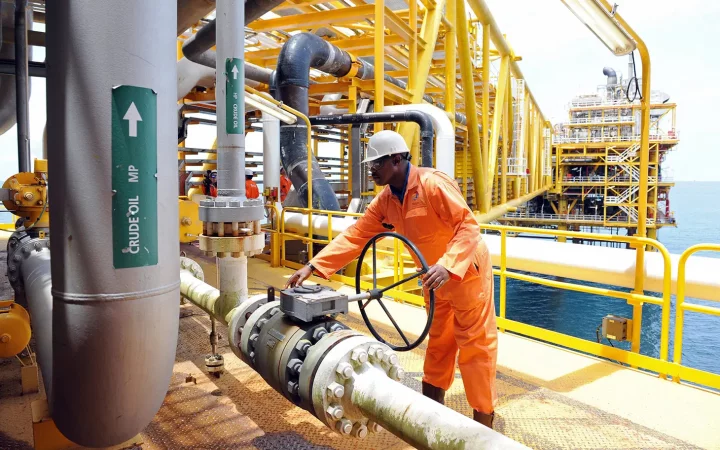
The Federal Government has banned the export of crude oil meant to meet the needs of domestic refineries in the country, apparently in a bid to boost local refining capacity, reduce the import of refined petroleum products and curb pressure on foreign exchange supply.
Hitherto, about 500,000 barrels of crude oil per day meant for domestic refining have been finding their way to the international market as producers and traders shortchange the policy for quick foreign exchange proceeds.
Acting through the upstream sector regulator, the Nigerian Upstream Petroleum Regulatory Commission, NUPRC, the government warned that it will henceforth deny export permits for crude oil cargoes intended for domestic refining.
The commission in a statement in Abuja, insisted that any changes to cargoes designated for domestic refining must receive express approval from its chief executive.
In a letter dated February 2, 2025, addressed to exploration and production companies and their equity partners, the commission's Chief Executive Officer, Engr. Gbenga Komolafe said diverting crude oil meant for local refineries is a violation of the extant laws of the country.
At a meeting last weekend, attended by more than 50 critical industry players, both refiners and producers blamed each other for inconsistencies in the implementation of the Domestic Crude Supply Obligation, DCSO, policy.
While refiners claimed that producers are not meeting supply terms and preferred to sell crude outside, forcing them to look elsewhere for feedstock, producers countered that refiners hardly meet commercial and operational terms, forcing them to explore other markets elsewhere to avoid unnecessary operational bottlenecks.
They, however, agreed that the regulator has put in place appropriate measures for effective implementation of the law.
The regulator cautioned against any further breaches from either party, and advised refiners to adhere to international best practices in procurement and operational matters.
The commission reminded producers not to vary the conditions stated in the DCSO policy without obtaining express permission from the chief executive before selling crude outside the agreed framework.
Komolafe referenced Section 109 of the Petroleum Industry Act (PIA) 2021, which aims to ensure stable supply of crude to domestic refineries and strengthen the nation's energy security.
He said NUPRC would, henceforth, strictly enforce the policy regarding implementation and defaults by oil companies.
He stated that significant regulatory actions had already been taken by the commission, in line with enabling laws to enforce compliance with the DCSO.
These actions, according to him, include development and signing of the Production Curtailment and Domestic Crude Oil Supply Obligation Regulation 2023, as well as the creation of the DCSO framework and procedure guide for implementation.
However, Vanguard gathered that the move is targeted at boosting the Naira-for-Crude programme, which aims at ensuring local refineries receive crude oil in naira and sell refined products to marketers in the local currency.
Dangote, Port Harcourt, Warri, other refineries need 770,500bpd
In its recent report, NUPRC disclosed that the Dangote Petroleum Refinery and seven other domestic refineries require 770,500 barrels of crude equivalent per day, Bopd, for processing in the first half (January - June) of 2025.
The refineries include 10,000 bpd OPAC refinery in Delta State, 5,000 bpd WalterSmith Refinery in Imo State, 2,500 bpd Duport Midstream in Edo State and the 1,500 bpd Edo Refinery in Edo State.
Others include the 11,000 bpd Aradel Refinery in Rivers State, 60,000 bpd old Port Harcourt refinery in Rivers State, 125,000 bpd Warri Refinery in Delta State and 110,000 bpd Kaduna Refinery in Kaduna State.
In its first half 2025 crude oil production forecast of producing oil companies and the refining requirement of functional refineries, the Commission, "The move is pursuant to Section 109 of the Petroleum Industry Act (PIA), 2021 and it is aimed at effective capacity utilization of the nation's domestic refineries by ensuring a consistent supply of crude oil."
According to the Commission, the allocation constitutes about 37 per cent of the forecasted first half 2025 average daily production of 2,066,940 bpd.
It maintained that the target will be met as its Project one million barrels launched in October 2024 has increased the capacity of the nation to produce crude for domestic use and export.
The commission said the initiative aligns with Nigeria's commitment to bolstering its domestic refining capacity and ensuring the sustainability of its oil industry.
It stated: "The forecasted daily crude requirement for Refineries which is Seven Hundred and Seventy Thousand, Five Hundred barrels (770,500 Bopd), is about 37% of the forecasted first half 2025 average daily production of Two Million, Sixty-Six Thousand, Nine Hundred and Forty Barrels (2,066,940 Bopd).
The crude oil will come from some International Oil Companies, IoCs, and independents, including Shell, Chevron and Seplat Energy.
The commission, which noted that refineries had different crude forecast requirements, put the requirements of Dangote Petroleum Refinery and OPAC refinery at 550,000 bpd and 5,000 bpd, respectively.
WalterSmith Refinery, Duport Midstream, Edo Refinery and Aradel Refinery at 4,500 bpd, 2,000 bpd, 1,000 bpd and 7,000 bpd, respectively. Also, Port Harcourt refinery, Warri Refinery and Kaduna Refinery need 60,000 bpd, 75,000 bpd and 66,000 bpd, respectively.
Nigeria's oil output rises 7.38% to 1.667 mbpd
Meanwhile, Nigeria's daily average oil production rose by 7.38 per cent year-on-year in December 2024 to 1.667 million barrels per day, mbpd, including condensate from 1.552 mbpd recorded over corresponding period in 2023, indicating that the nation's crude oil supply situation has improved.
In its latest oil production data, NUPRC indicated that on a month-on-month basis, daily average oil output in December 2024, declined by 1.35 per cent from 1.690 million barrels per day recorded in November, 2024, to 1.667mbpd.
Data from the commission also indicated that daily peak oil production in December 2024 was 1.79mbpd while the lowest daily production was 1.57mbpd.
Cumulatively, oil output in December 2024, was 51.69 million barrels, a marginal increase of 1.9 per cent when compared to 50.71 million barrels produced in November 2024.
Further analysis of the data showed that the highest oil output in December 2024 was recorded at Forcados Terminal at 8.49 million barrels, followed by Bonny Terminal, 7.78 million barrels and Qua Iboe, 4.15 million barrels.
The data showed without condensate, daily oil production was 1.484 million, indicating that Nigeria, again, failed to meet its oil production quota of 1.5mbpd allotted her by the Organization of Petroleum Exporting Countries, OPEC.
The December 2024 average daily oil output also means that Nigeria failed to meet the 1.7mbpd benchmark set for the 2024 budget all through the year.
NUPRC data on daily average production showed that oil production including condensate in January 2024 was 1.64mbpd; February, 1.53mbpd; March, 1.44mbpd; April, 1.45mbpd; May, 1.47mbpd; June, 1.50mbpd; July, 1.53mbpd; August, 1.57mbpd; September, 1.54mbpd, October, 1.54mbpd; November, 1.69mbpd; and December, 1.67mbpd.
Interventions to enhance domestic refining, reduce importation - NNPCL
Reacting to the report on insufficient crude oil supply to local refineries, the Chief Corporate Communications Officer, NNPC Limited, Mr. Femi Soneye, said NNPC is now an independent player in the oil and gas industry.
In a note to Vanguard, Soneye stated: "The Federal Government has implemented policies to ensure that local refineries receive crude oil supplies to enhance domestic refining capacity and reduce dependence on imported petroleum products. Under the Petroleum Industry Act, PIA, of 2021, oil producers are mandated to allocate specific volumes of crude oil to domestic refineries before exporting the remainder.
"These policies reflect the government's commitment to strengthening national energy security by promoting local refining and reducing reliance on imported petroleum products. NNPC is a player in the market and we have continually stressed these facts".
Bold step, will impact nation's economy - CPPE, expert
However, Chief Executive Officer, Centre for the Promotion of Private Enterprise, CPPE, Dr. Muda Yusuf, said in his immediate reaction to the development: "This is, of course, a very good development if only the NUPRC can effectively ensure enforcement or effectively ensure implementation of this directive.
"Because this requires a very strong political will to implement, but if this can be implemented I think it will be good for the Nigerian economy, it will be good for the refineries and it will be good even for the citizens and businesses because I believe that generally sourcing crude domestically should be more favourable to the economy than importing. It will be more favourable for instance from the point of view of our foreign exchange.
"I think it will be much better, it will be of much benefit to us from the point of view of energy security because we are able to localise the free stock and localise even the supply chains which will shield us from any possible external shocks or disruptions.
"I think it will also help in terms of stabilising the price of petroleum products because there are a lot of benefits to domestic sourcing of raw materials or the free stock.
"So the government I think has done well but what is most important is to ensure that we create the environment to produce, you know, to increase the level of our crude oil production.
"If the crude oil supply is increased, I think the challenges of meeting the domestic crude supply obligation will be much less because both the producers and the refiners will now have, you know, the right to produce.
"It will be much better also to creating an enabling environment, particularly from a security point of view, to ensure that we ramp up production. That way, I mean, there will be no pressure, there will be no strain, there will be no stress on either party.
"But I think it's in the overall interests of the country that these domestic crude supply obligations are there. And as much as possible, we should also ensure that we also don't discourage investment in crude production itself. So, it's a delicate balance that needs to be maintained."
Interventions, long overdue - Prof Wumi, Dr Zakka
Prof. Wumi Iledare, a Professor Emeritus in Petroleum Economics and Policy Research, said in his reaction: "It should be challenged in the courts of law if two things did not happen before the ban. It should be noted that domestic obligation is not at a give away price, neither can you invoke a naira pricing at an unstable exchange rate."
Similarly, in a telephone interview with Vanguard, yesterday, a Port Harcourt-based energy expert, Dr. Bala Zakka, said: "The NUPRC's intervention is long overdue. It is a long awaited action that should have been taken."
Oil prices leaps to $76.45 per barrel on supply fears
Meanwhile, oil prices, including Nigeria's Bonny Light, rose on Monday after U.S. President Donald Trump imposed tariffs on Canada, Mexico and China, raising fears of supply disruption, though gains were capped by concern over what could be an economically damaging trade war.
Brent crude futures rose 78 cents, or 1.03%, to $76.45 a barrel by 0933 GMT after touching a high of $77.34.
U.S. West Texas Intermediate crude futures were up $1.36, or 1.88%, at $73.89 after touching their highest since Jan. 24 at $75.18.
Oil output has improved -Lokpobiri
Recently, the Minister of State Petroleum Resources (Oil), Senator Heineken Lokpobiri noted that the nation's crude output has improved, due to the removal of regulatory bottlenecks and collaboration amongst stakeholders.
He stated: "With the Presidential directive to ramp up oil production to a sustainable level, the journey of transformation in our oil sector began. This visionary directive by President Bola Ahmed Tinubu, as broad as it was, became the cornerstone of my commitment and that of my team.
"We embraced it wholeheartedly, engaging stakeholders both domestically and internationally to build synergy and foster partnerships. Through these efforts, we successfully attracted significant investments and strengthened institutional frameworks, driving the remarkable transformation we see today in the sector.
"From the production level of 1mbpd when we began, we have boosted output to 1.8mbpd, inclusive of condensates, and continue to aspire for even greater heights. Our achievements include attracting foreign investment decisions, winning the bid to host the Africa Energy Bank, sustaining peace across Host Communities through robust community engagements, and fully deregulating the downstream sector, ensuring constant availability of petroleum products."

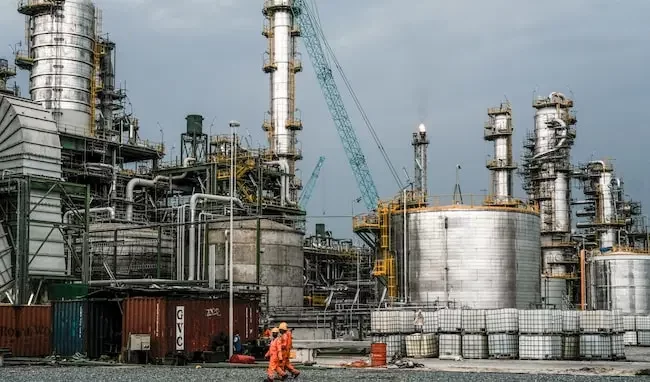

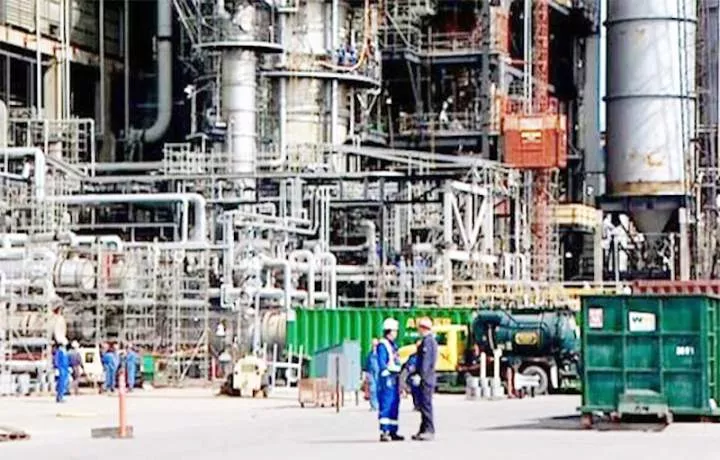
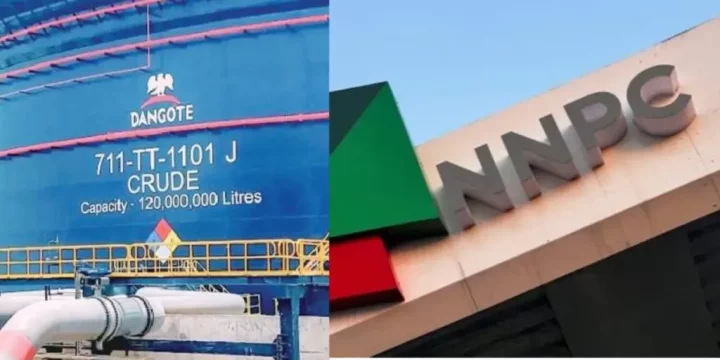
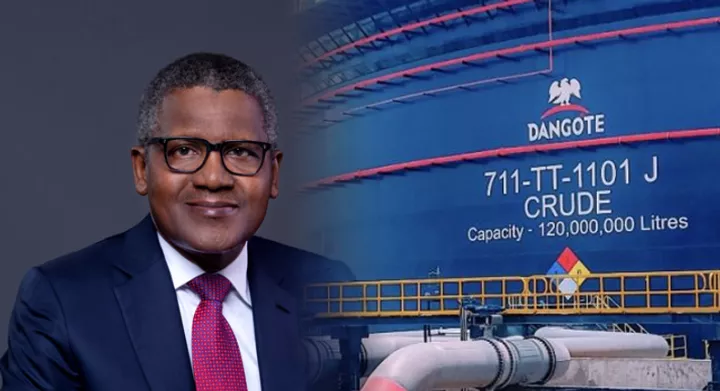









Comments